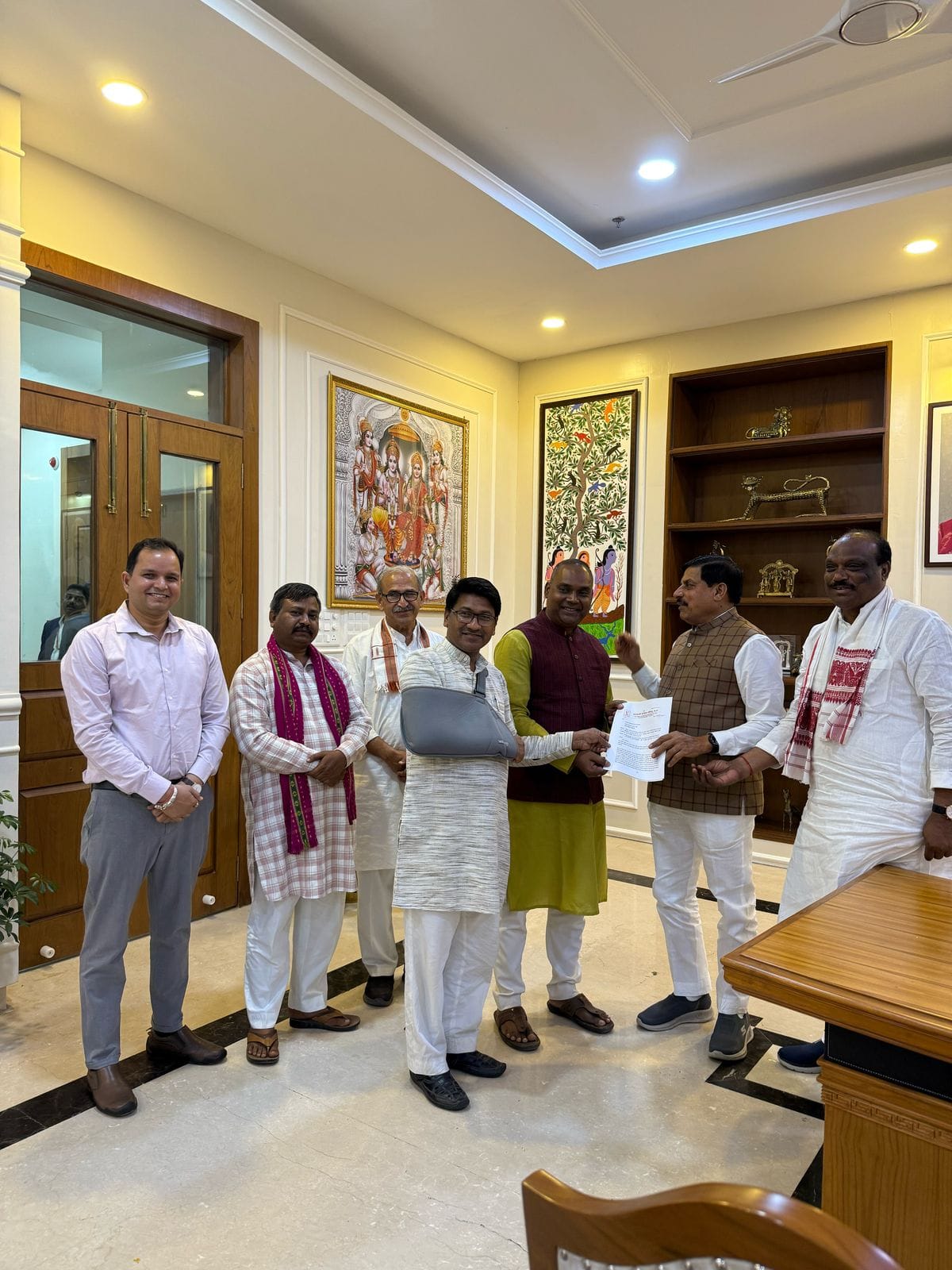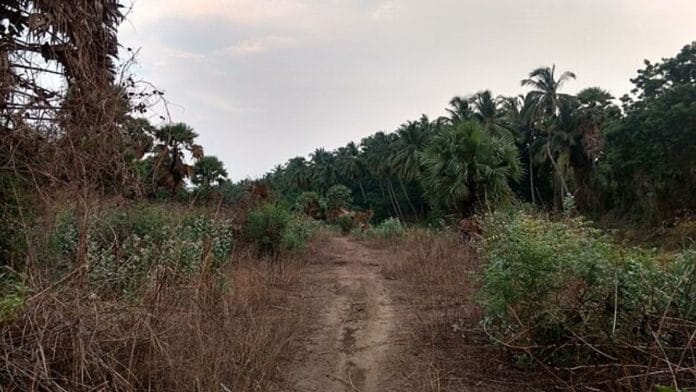Bhopal: The Madhya Pradesh government’s draft policy to allow private investment for the restoration of 3.7 million hectares of degraded forests has drawn protests from both ends of the political spectrum—Vanavasi Kalyan Parishad, the tribal wing of the Rashtriya Swayamsevak Sangh (RSS), and Opposition Congress.
On 25 February this year, the Global Investment Summit in Bhopal saw discussions on the draft policy, ‘Forest restoration using CSR, CER and non-government funds’, drawing responses from the Bhopal unit of the Vanvasi Kalyan Parishad, the Congress, and the CM’s officer on special duty, Laxman Singh Markam.
Under the forest restoration draft policy, parcels of degraded forests will be handed over to private players, companies or individual investors, for 60 years. The private players will ensure the restoration of the land, and, in return, they will get a share of the carbon credits and forest produce.
Vanavasi Kalyan Parishad has expressed its strong disapproval of the policy, citing a lack of clarity on the role of the gram sabhas under the recently enforced Provision of Panchayat (Extension to Schedule Area) Act or PESA Act, 1996, and how the forest restoration policy will play out.
Speaking to ThePrint, Vikrant Bhuriya, the newly appointed chairman of the All India Adivasi Congress, questioned the policy’s intent on safeguarding the rights of the tribal community.
“Madhya Pradesh has the highest number of cases on rights over land pending under the Forest Rights Act. The state has the highest rejections over land claims. What happens to these tribal communities after the handover of their land for such reforestation activity—where will they go, and what provision has the government made for them?” he said.
Laxman Markam, also the additional secretary at the Tribal Research Institute, opposed the move. In his note to the government, Markam pointed out that of the 54 districts in the state, 20 are reserved tribal districts, and under Article 244 of the Indian Constitution, the state can not hand over such land to private players.
Three days after the Bhopal summit, a delegation led by Girish Kuber, a CAMPA (Compensatory Afforestation Fund Management and Planning Authority) member, met CM Mohan Yadav and raised the same apprehension.
“During the investor summit, a draft of the (forest restoration) policy was put forth, but the idea was to involve all stakeholders and get their views and suggestions on such policies,” said Kuber, also a special invitee to the task force formed last year under the chairmanship of the CM for enforcing the PESA Act and the Forest Rights Act of 2006. “After the handover of degraded land to investors for forestation, the land will be fenced. How will the forest committee interact with such land parcels then?” he added, raising concerns.
The 28 February delegation also included Subhash Barole, regional organisation secretary of Vanvasi Kalyan Ashram; Kalu Singh Mulajda, a member of the Tribal Advisory Council; and Laxman Singh Markam, another PESA task force member.

After the latest PESA task force meeting, the CM ordered the removal of the draft forest restoration policy from the state forest department website, assuring that the protection of tribal land, rights, water, and their culture is the government’s topmost priority.
“We will now call for a workshop with all stakeholders, from forestry, biodiversity to environment departments, for their suggestions and comments before formulating such a policy. Jab samudra manthan hota hai, toh usmein se vish bhi nikalta hai aur amrit bhi, parantu kuch log vish piye, aur kuch amrut, aisa toh nahi hona chahiye (The churning ocean gives rise to both poison and nectar; it should not happen that some people drink the poison and some drink the nectar),” explained Kuber.
Speaking to The Print, Additional Chief Secretary Ashok Barnwal said, “We have received suggestions on various aspects and it’s in being discussed to further enhance the policy and incorporate different views.”
Also Read: What are green credits & why are former civil servants objecting to them
Details of draft policy
With 3.7 million hectares of the 9.5 million hectares of the forests in Madhya Pradesh degraded, the state forest department, citing a substantial funds requirement for forest restoration, had sought alternative funding sources, such as private companies and individual private investors, to boost the green cover and, in return, get a share of the carbon credits and forest produce.
The draft policy allows private investment in two ways. First, it looks at forest restoration using Corporate Social Responsibility (CSR) and Corporate Environment Responsibility (CER) funds, allowing a company to take a minimum of 10 hectares of land for 60 years. Second, the policy looks at forest restoration through private investors, allowing them to take a minimum of 25 hectares and a maximum of 1,000 hectares of land for 60 years.
In both cases, the private player will sign a 60-year tripartite agreement with the forest committee and the Madhya Pradesh State Forest Development Corporation (MPSFDC).
Under the agreement, the private player will enjoy rights over 90 percent of the carbon credits for 60 years, and the forest committee will get the remaining 10 percent.
In the case of the forest produce, the private player and the MPSFDC will divide 80 percent of the yield, and the remaining 20 percent will go to the forest committee. The MPSFDC share will not fall below 30 percent, ensuring a distribution of 20 percent to the forest committee and 50 percent to the private player.
The private player will also have the first right to purchase the forest produce at the highest bid.
This is not the first time the MP government has tried to introduce such a policy.
A similar policy, which allowed utilisation of funds received under CSR, CER and other private funds, was approved in 2021. The policy allows investors to gain from carbon credits via plantation in degraded forest, with a plan extending for 10 years and on a land parcel, which is at least 10 hectares.
Unlike the previous policy, the new policy created different rules for restoring degraded forests through investment from the private sector, allowing a much longer engagement for 60 years.
(Edited by Madhurita Goswami)
Also Read: ‘Broad definition of forests & imprecise data’. Why govt forest cover report might be too optimistic






